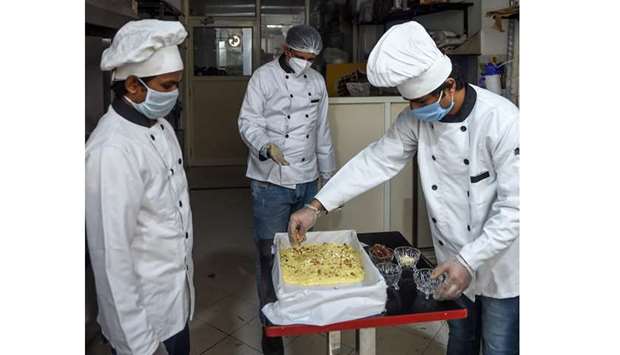After remaining in lockdown for over two months, the people of India will proceed towards a normal life from today but with several terms and conditions.
With this comes a time which will be highly sensitive for the country.
Experts say that the lockdown slowed the speed of the transmission of infection and bought some time for the health infrastructure to meet the challenge posed by the pandemic.
However they are worried that the numbers will rise exponentially in the time to come.
Speaking to IANS a senior epidemiologist and public health specialist in a Delhi government hospital said on the condition of anonymity, “As we are moving towards unlocking the country, I can clearly see that the situation is going to worsen. There are various reasons to say that. In our country at least 22% of the population lives below the poverty line. It’s very difficult to expect them to use sanitisers and soaps and even water. Many of them cannot afford to do so.
“They also wear low quality masks which hardly save them from the disease but merely give them false sense of security. Secondly, even educated people don’t know how to wear a mask. They continue touching it from the front.”
He also said that the people after getting some relaxation will become reluctant towards social distancing. “People will try to meet their friends and relatives etc in relaxation as they have kept distance for a very long time. But they should remember that the disease is still there.
“The third reason is that the upper middle class can afford a separate room for self-isolation but there are thousands of people living in a single room where it is impossible to avert the transmission. We are already seeing community transmission.
“Hospitals are preparing themselves but there are also loopholes. There should be a provision that the samples must be collected at the same place where the patient reported the disease. They send the infected persons from one centre to another, meanwhile the person infects others. They need to expedite the diagnosis procedure.”
Dr Neha Gupta of Fortis Memorial Research Institute in Gurugram told IANS that as the cases are increasing, there may be shortage of beds if all patients are admitted, therefore mild cases need to be managed at home quarantine.
“As community transmission is well established now and the cases are increasing - there may be a shortage of beds if all patients are admitted. Hence cases with mild symptoms can be managed at home quarantine under the telemedicine guidance of a good physician or infectious diseases specialist with video consultation if the home facility permits.
“Moderate or severe cases with breathlessness or pneumonia or saturation decreasing to less than 94%, need hospitalisation in a dedicated Covid care centre or heath centre or hospital.
“Now, home quarantine or hospitalisation based on the symptoms is becoming a part of the care.”
On the preparation of the hospitals in the coming time, Dr Saurabh Sachar of the Safdarjung hospital told IANS that the hospital is preparing itself to receive more patients.
“As far as Safdarjang is concerned, we are trying to scale up the infrastructure. We are trying to increase beds in ICU and corona wards. But every hospital has a set potential and can go up till that only, we are trying our best to increase our infrastructure which was there till May. Now every person needs to take care of their own health and ensure that they don’t get infected.”
The government has also come out with home quarantine policy so hospitalisation may be required for highly susceptible age group and where deterioration could be much faster or who are exhibiting more serious symptoms, the doctor said.
“Currently we have 70 ICU beds and 300-500 ward beds, now we are planning to make it at least 200 ICU beds and increasing ward beds. We are also getting more ventilators this week by the ministry.”
Dr Ritu Garg, zonal director of Fortis told IANS how the hospital is extra alert to avert the chances of infection.
“With the relaxation in the lockdown, there are chances of the cases in India to increase. We are following very strict extensive screening at the entrance of the hospital. Anyone with flu-like symptoms is isolated and taken to separate flu corner which is outside the main building. At the entry point each visitor is checked for fever, cough and cold along with Aarogya Setu app and if they are coming from the containment zone. The hospital has deployed indoor disinfectant robots for sanitising the premises.

‘Cakelicious and the Cake Studio’ owner Gunjan Parmar (centre) watches his employees preparing a baked tea-time cake made of ingredients that are said to boost the immunity system in the shop’s kitchen in Ahmedabad yesterday.
